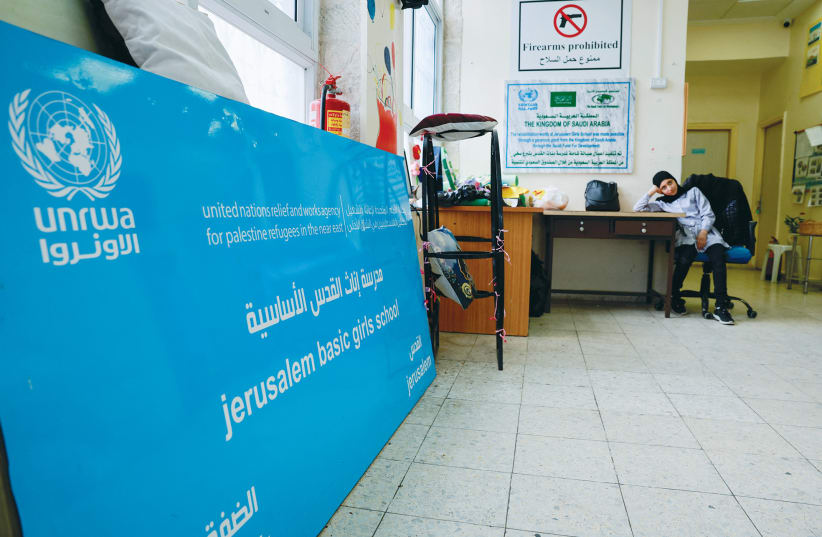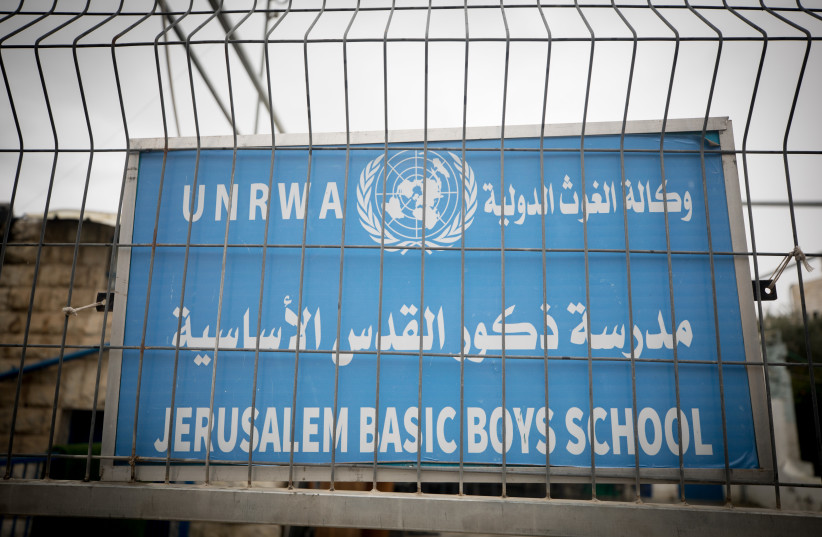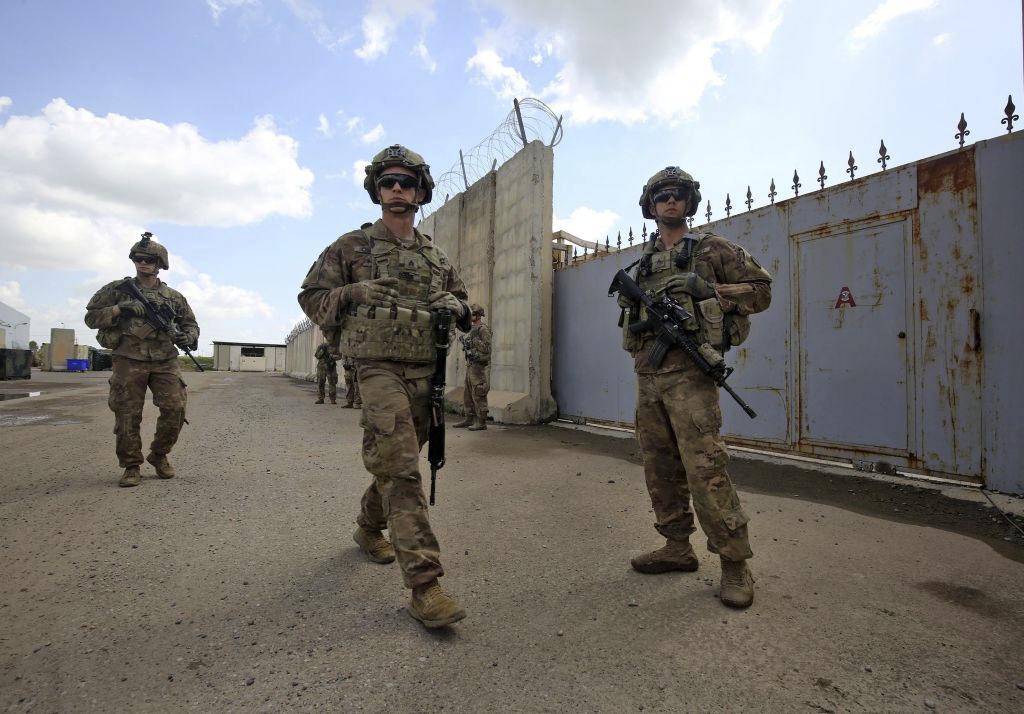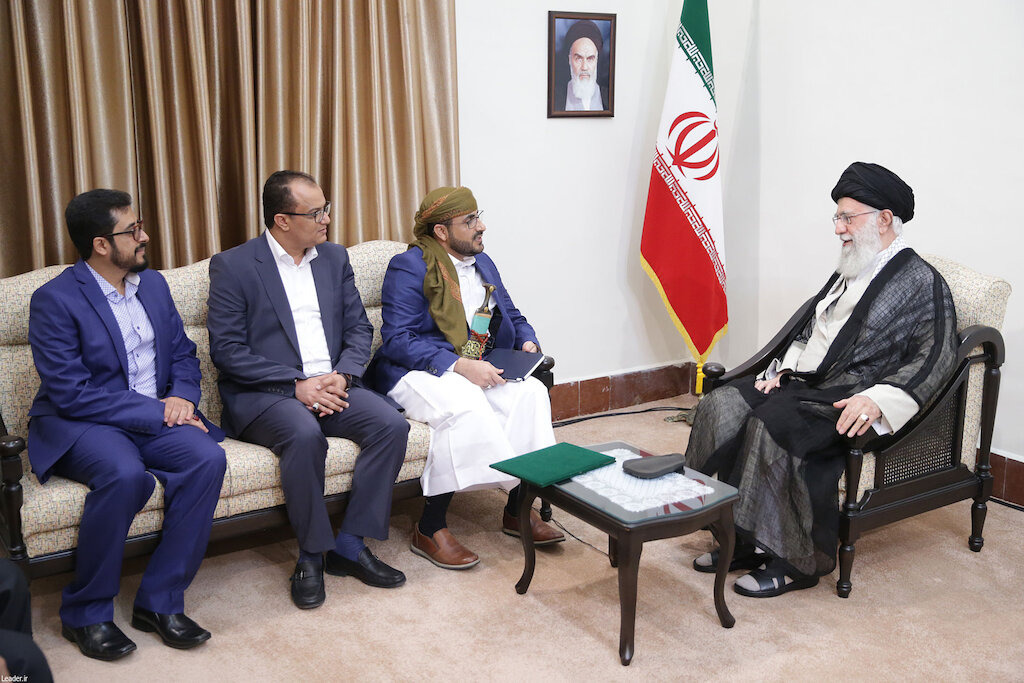by BassamTawil
The incident in Jenin is further proof – more is hardly needed – that the PA cannot be trusted to enforce law and order or rein in terrorists in the Gaza Strip, were there to be a state.
In light of the aversion of the Palestinian Authority (PA), its ministry of health, and its security forces to expelling the three terrorists from the Jenin hospital, the US administration's plan for bringing the PA back to the Gaza Strip to replace Hamas and create a Palestinian state seems more than foolhardy.
In addition, a Palestinian state without Israel's consent would be a massive violation of the Oslo Accords. The nonstop actions, or rather inactions, of the PA serve as further evidence that, contrary to what the US administration believes, the PA cannot be "revitalized."
The PA indisputably has no intention of changing its policy of glorifying and financially rewarding terrorists. PA leaders continue to praise terrorists as "heroes" and refuse to halt their policy of paying monthly stipends to Palestinians who murder Jews.
The incident in Jenin is further proof – more is hardly needed – that the PA cannot be trusted to enforce law and order or rein in terrorists in the Gaza Strip, were there to be a state. The PA, in its current location in the West Bank, does nothing to stop Hamas and other terrorists from pursuing their activities to murder Jews and obliterate Israel. There is no evidence to assume that it would behave any differently in Gaza. There is much evidence to assume that it would.

The Ibn Sina Specialized Hospital is one of several medical facilities in the West Bank city of Jenin, which is under the exclusive control of the Palestinian Authority (PA). As such, the hospital operates in accordance with a license from the PA's Ministry of Health.
On January 30, Israeli security forces found and killed three Palestinian terrorists who were hiding inside the hospital. A statement issued by the Iran-backed Hamas group identified the three terrorists as Mohammed Walid Jalamneh and brothers Mohammed and Basel al-Ghazawi. Al-Jalamneh was described as a commander of Hamas's armed wing, the Izaddin al-Qassam Brigades, while the two brothers were labeled by Palestinians as mujahideen (holy warriors) belonging to Hamas and Palestinian Islamic Jihad, another Iran-backed Palestinian terrorist proxy group.
The three terrorists did not come to the hospital to receive medical treatment or visit patients. In reality, they had been hiding inside the hospital for several weeks because they knew that Israeli security forces were searching for them. The Israelis were not searching for them because they had failed to pay their electricity or water bills.
According to Israeli authorities, the terrorists were planning an attack against Israelis inspired by Hamas's massacre on October 7, 2023, in which 1,200 people were murdered, beheaded, raped, mutilated and burned alive. Jalamneh, the slain leader of the terror cell, was previously wounded while preparing a car bomb attack. He had been in contact with Hamas officials abroad, presumably in Qatar, Lebanon and Turkey, and provided weapons to other terrorists for shooting attacks against Israelis. Jalamneh had also served as a spokesman for the Izaddin al-Qassam Brigades in the Jenin area, and had often appeared in military uniform and a mask to read out statements by his group.
The presence of the Hamas and Palestinian Islamic Jihad gunmen inside the hospital did not surprise those who have been following and documenting the Palestinian terrorist groups' use of hospitals as safe shelters and bases for their activities. Since the beginning of the current Israel-Hamas war, it has been confirmed that hospitals are Hamas's preferred central sites for terrorist activities. The terror infrastructure in the hospitals is meant to ensure optimal protection for the terrorists during times of war, by taking advantage of Israel's commitment to the laws of armed conflict and avoidance of carrying out significant strikes on hospitals and other locations such as schools and mosques, which are protected under the Geneva Conventions (unless they are used for military purposes; then, they are no longer protected).
The Israel Defense Forces (IDF) have documented a consistent and systematic method of operation by the terrorist groups:
Above ground, on the floors of the hospitals themselves, alongside the normal wards that exist in every hospital, the terrorist organizations store weapons and military equipment. Among the weapons found in the hospitals were hand grenades, explosive devices, and RPGs (rocket-propelled grenades). Senior Hamas terrorists stay in hospitals during times of war, even using Intensive Care Unit wards where they are disguised as "patients" or medical staff.
In the basements of the hospitals, on the underground floors, next to offices, are exits connecting to underground operational infrastructure and Hamas command and control centers, communication infrastructure and technological equipment.
Beneath hospital complexes in Gaza is an underground network of terrorist tunnels leading from hospitals to nearby terrorist bases.
On the premises of hospitals, the IDF has discovered vehicles loaded with weapons, including at Gaza's Shifa Hospital, as well as operational tunnels under the hospitals designed to ambush IDF soldiers. In addition, Hamas has deliberately embedded terrorist infrastructure near the hospitals with the understanding that Israel would try to avoid targeting these locations as that could be portrayed as a strike on the hospitals themselves.
Ahmad Kahalot, director of Kamal Adwan Hospital in Gaza, has admitted that Hamas has turned hospitals into military facilities under its control. During an Israel Security Agency interrogation, Kahalot revealed how Hamas uses hospitals for military purposes, including storing weapons, hiding its operatives, and moving members of Hamas.
Hamas, he said, even brought a captured soldier to the hospital. Kahalot, who was arrested on December 12, 2023, said he has been part of Hamas since 2010.
"I was recruited to Hamas in 2010 with the rank of Brigadier General," he revealed. "There are employees in the hospital who are military operatives of the Izaddin al-Qassam Brigades -- doctors, nurses, paramedics, clerks, and staff members."
According to Kahalot, Hamas members hide in hospitals, which they realize are "protected." "They hide in hospitals because for them a hospital is a safe place. They won't be targeted when they are inside a hospital," he said. "I know 16 employees in the hospital – doctors, nurses, paramedics, or clerks... who also have different positions in al-Qassam."
What is surprising and disappointing is that many in the international community and media, including the World Health Organization (WHO), continue to ignore -- or even deny or cover for -- the actions of the terrorists in the hospitals.
During a recent session with WHO's executive board, Israeli ambassador Meirav Eilon Shahar said that Hamas "embeds itself in hospitals."
In "every single hospital that the IDF searched in Gaza, it found evidence of Hamas's military use," she remarked. "These are undeniable facts that WHO chooses to ignore time and time again. This is not incompetence; it is collusion."
In Jenin, the terrorists found shelter inside a hospital under the administration of the Palestinian Authority Ministry of Health. It is safe to assume that many of the staff, including the administration at Jenin's Ibn Sina Specialized Hospital, were aware of the presence of the gunmen in one of the patient rooms. What did hospital administrators and doctors do to remove the terrorists from the hospital? Nothing. What did the PA Ministry of Health do to make sure that the terrorists were expelled from the hospital? Nothing.
The PA, undoubtedly aware of the presence of the terrorists inside the hospital, has multiple security and intelligence agencies in Jenin; they are known for their tight grip on the city. Did the PA government order its security officers to remove the terrorists from the hospital out of concern for the safety of the medical staff and the patients? No.
Instead of condemning Hamas and Palestinian Islamic Jihad for turning the hospital into a safe haven for terrorists and using it as a base to plan another massacre of Israelis, the PA was quick to condemn Israel for eliminating the gunmen who, by the way, belong to two groups opposed to the Palestinian Authority. PA Prime Minister Mohammad Shtayyeh, on a tall-tale-binge, accused Israeli security forces of "storming hospitals and carrying out field executions of patients, while intimidating other patients and the doctors."
Instead of thanking the Israeli security forces for getting rid of the terrorists who were holed up inside the hospital, Tawfik al-Shoubaki, director of Ibn Sina Specialized Hospital, also denounced the security raid as a "dangerous precedent."
Wissam Subeihat, director of healthcare services in Jenin for the PA Ministry of Health, condemned the killing of the terrorists as a "crime" and called on international organizations to "hold Israel accountable." Subeihat also claimed, falsely, that the Israeli soldiers assaulted medical staff during the raid.
In light of the aversion of the PA, its ministry of health, and its security forces to expelling the three terrorists from the Jenin hospital, the US administration's plan for bringing the PA back to the Gaza Strip to replace Hamas and create a Palestinian state seems more than foolhardy.
In addition, a Palestinian state without Israel's consent would be a massive violation of the Oslo Accords. The nonstop actions, or rather inactions, of the PA serve as further evidence that, contrary to what the US administration believes, the PA cannot be "revitalized." The PA has never acted as a peace partner to Israel. Instead, it has constantly incited its people against Israel and Jews by denying Jewish religious links to Israel, to Jerusalem and the Temple Mount, all the while accusing Jews of "defiling" Islamic holy sites and waging a diplomatic and legal warfare to delegitimize and isolate Israel in the international community.
The PA indisputably has no intention of changing its policy of glorifying and financially rewarding terrorists. PA leaders continue to praise terrorists as "heroes" and refuse to halt their policy of paying monthly stipends to Palestinians who murder Jews.
The incident in Jenin is further proof – more is hardly needed – that the PA cannot be trusted to enforce law and order or rein in terrorists in the Gaza Strip, were there to be a state. The PA, in its current location in the West Bank, does nothing to stop Hamas and other terrorists from pursuing their activities to murder Jews and obliterate Israel. There is no evidence to assume that it would behave any differently in Gaza. There is much evidence to assume that it would.
Bassam Tawil is a Muslim Arab based in the Middle East
Source: https://www.gatestoneinstitute.org/20360/palestinian-hospitals







